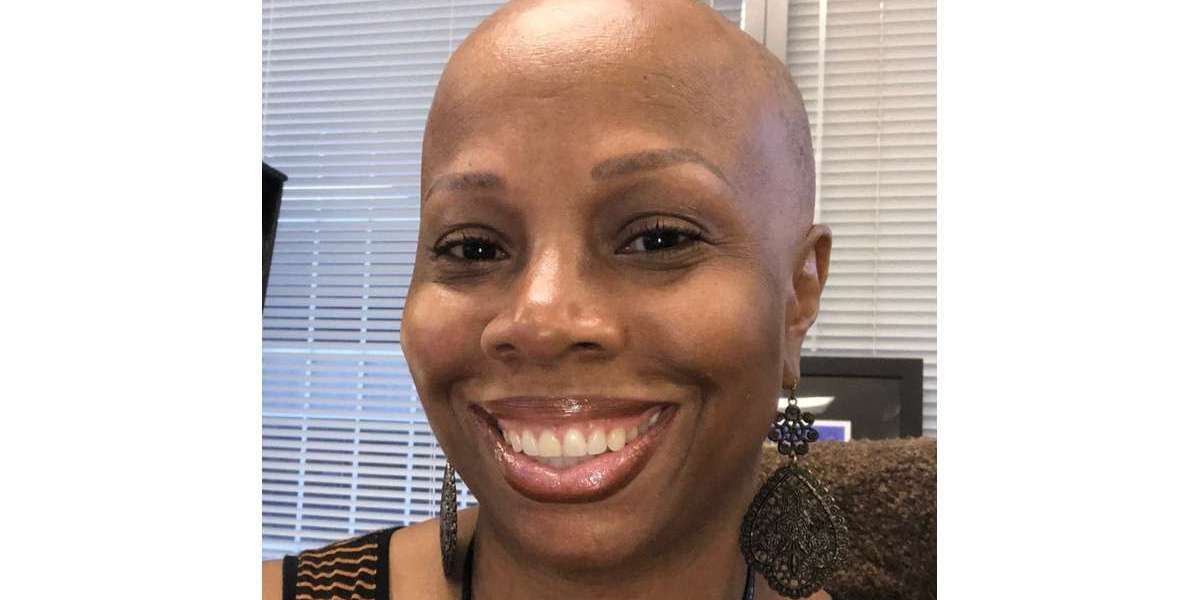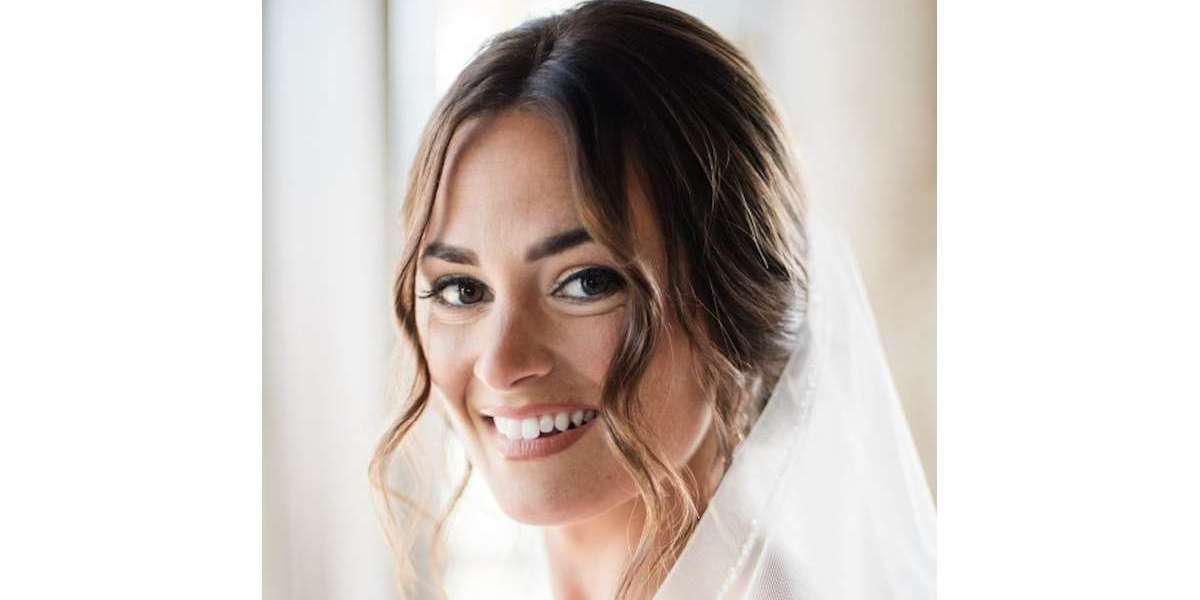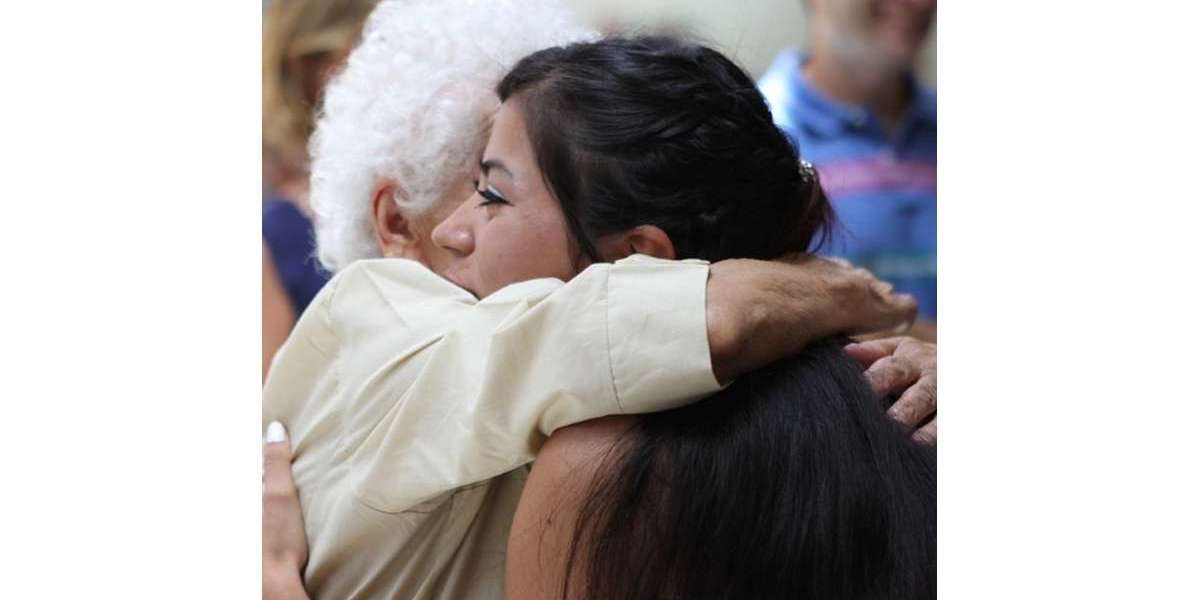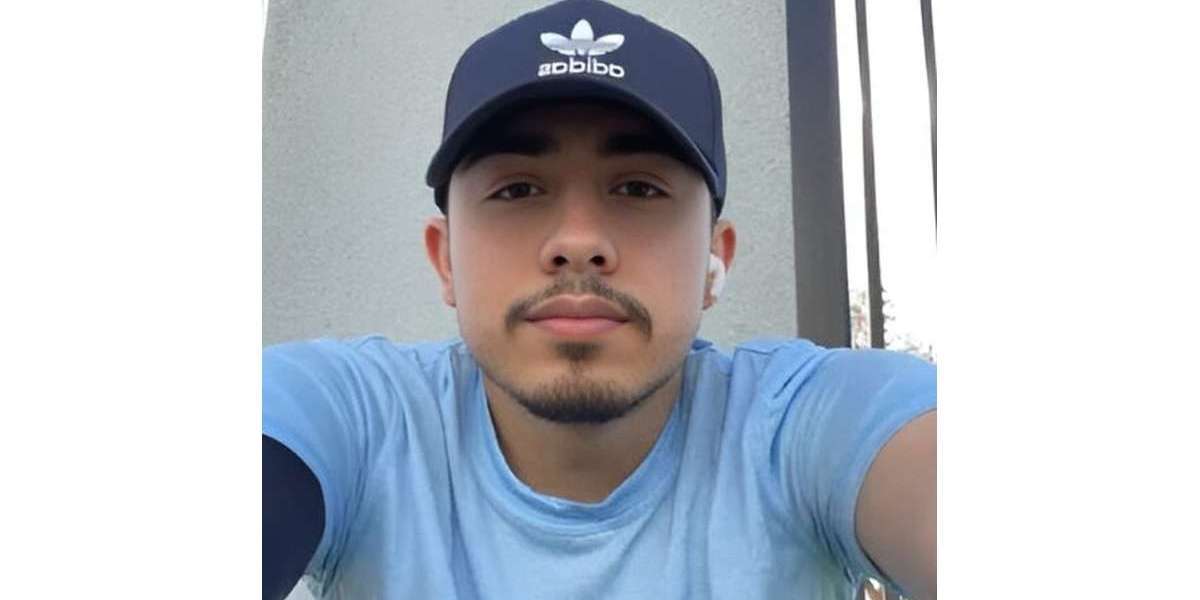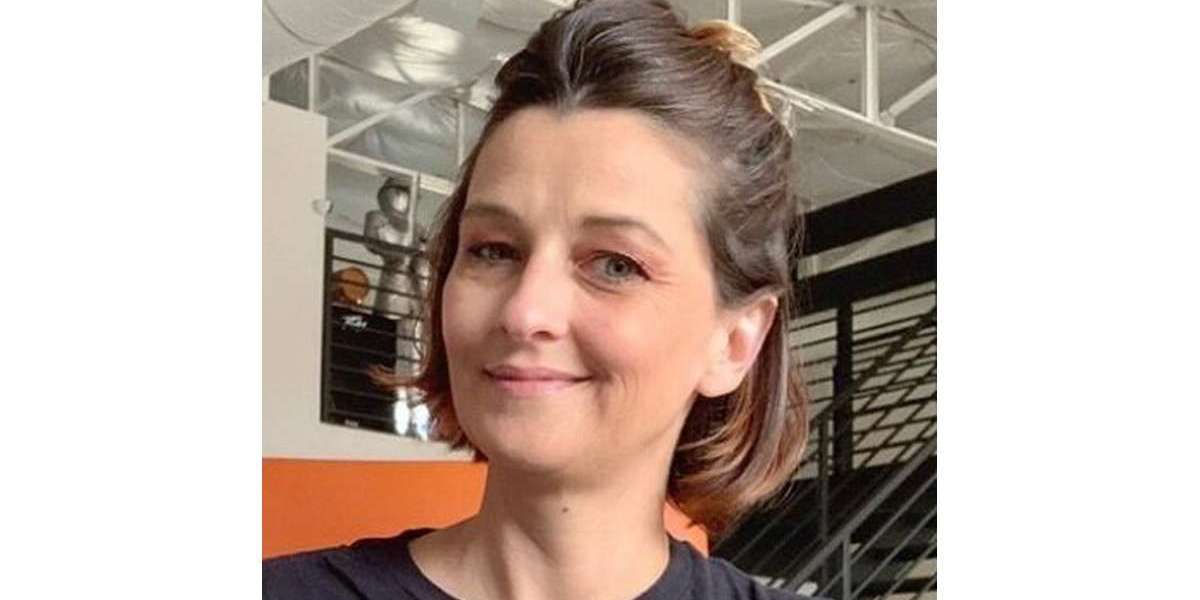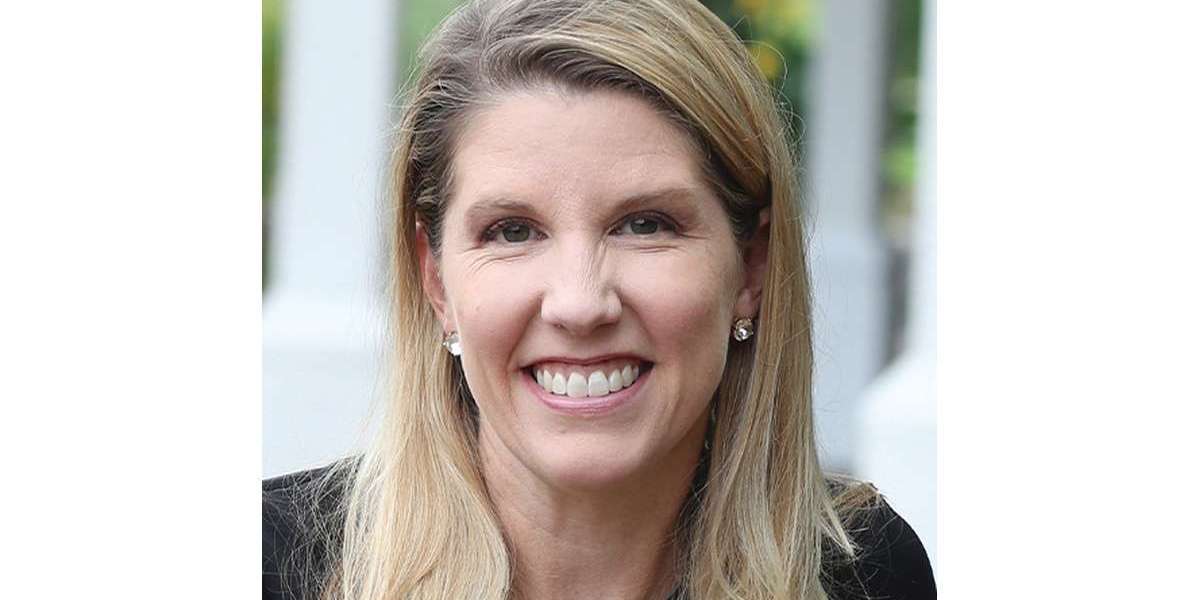Maurissa’s Stage 3 Low-Grade Serous Carcinoma Ovarian Cancer Story
Maurissa M., Low-Grade Serous Ovarian Cancer
Symptoms: Pressure on bladder, throbbing pain, could feel growth on right side of abdominal area
Treatments: 5 surgeries (official diagnosis after 3rd)
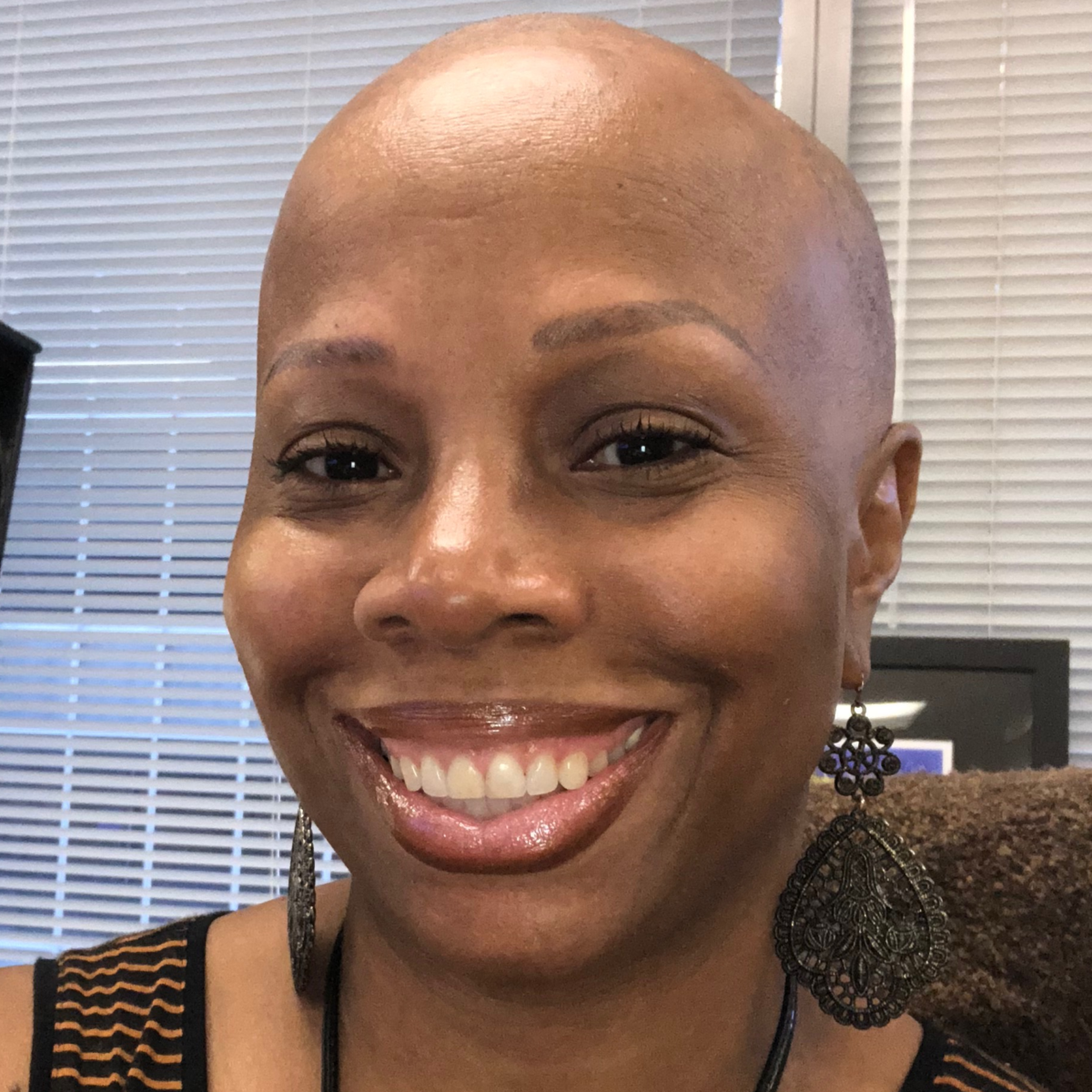
Maurissa’s Stage 3 Low-Grade Serous Carcinoma Ovarian Cancer Story
Maurissa shares her stage 3 ovarian cancer diagnosis at 49 years old, undergoing five surgeries during seven years and two rounds of chemotherapy.
In her story below, Maurissa also highlights how she navigated life with cancer, like the impact of the treatment on her sexual health and life, the importance of being a self-advocate, and the difficulties of dealing with financial toxicity. Thanks for sharing your story, Maurissa!

- Name: Maurissa M.
- Diagnosis:
- Ovarian cancer
- Low-grade serous carcinoma
- Stage 3
- Ovarian cancer
- Age at Diagnosis: 49
- 1st Symptoms:
- Pressure on bladder
- Throbbing pain
- Could feel growth on right side of abdominal area
- How diagnosis happened:
- Constipation and low blood count results in Irritable Bowel Syndrome (IBS) diagnosis
- Ultrasound showed fibroids
- Treatment:
- 5 surgeries
- Hysterectomy (Aug. 2012)
- Right ovary surgery (Jan. 2017)
- Surgery for tumors on colon, bladder, lymph nodes, stomach lining (Jan. 2018)
- Surgery for new turmos around abdomen (Nov. 2018)
- Scheduled surgery (July 2019)
- Chemotherapy
- Round 1: Hormone replacement therapy, Arimidex (Jan-Oct 2018)
- Round 2: Chemotherapy (Carboplatin) & targeted therapy (Avastin) (Dec 2018-April 2019)
- 5 surgeries
- Pre-Diagnosis
- Hysterectomy
- Oncology Appointments
- Second & Third Surgeries
- Describe the surgery to remove those tumors
- What was the follow-up post 2nd surgery?
- What were you feeling that indicated something was still wrong?
- Describe the January 2018 surgery
- How long was the surgery recovery?
- How was it dealing with a catheter post-surgery?
- How did it feel getting the catheter put in and taken out?
- Official Diagnosis
- Treatment Decisions
- Fourth Surgery
- Chemotherapy
- When did you start chemotherapy?
- How did you mentally prepare for this round of chemotherapy?
- Describe the chemotherapy regimen and process
- How many cycles of chemo did you undergo?
- Describe the weeks each cycle of chemo
- What were the chemo side effects?
- What helped with the chemo side effects?
- You experienced neutropenia (low white blood cell count). What helped?
- Did you do chemo intravenously, through a port, or PICC line?
- What happened after you were done with the chemotherapy?
- New Tumors
- Quality of Life
- Mental & Emotional Support
- Work & Finances
- One More Message
This interview has been edited for clarity. This is not medical advice. Please consult with your healthcare provider for treatment decisions.
I just want to say God bless you, and I’m really sorry that you’re dealing with this. It is a shocker, but I think in life things are never as bad as we imagine them to be.
Given a diagnosis is a gut punch for sure. You have to believe that you’re strong enough, that you’re able to get through it.
Advocate for yourself; this is the time. Particularly women, this is the time to be selfish and to think about yourself and to put your needs first.
Maurissa M.
Pre-Diagnosis
What were the first signs something was wrong?
I was having a lot of constipation. Then my blood count was really low. My doctor referred me to a gastroenterologist for a colonoscopy because they were thinking that that was probably the reason.
There was nothing. The colonoscopy came out fine. My blood count was still really low.
From there until the next year, I would still go back to the doctor and tell her I was having these symptoms. The diagnosis was irritable bowel syndrome (IBS), which has similar symptoms to ovarian cancer. I was also having incontinence, so I was referred to the urologist.
Describe the ultrasound process
It was called a transvaginal ultrasound. They insert the medical instrument inside you to kind of see what’s going on inside of your vagina and your uterus. It was pretty simple and straightforward. There was no pain at all.
You could see on the screen, even to the untrained eye, that there were some things going on. The technician actually pointed out to me, like, “Oh, yeah, I see these fibroids are really huge.” The urologist was doing some testing and said, “I think you’ve got fibroids.”
Luckily, my urologist was in the same building as the gynecologist, so I just had to go to the gynecologist office [to] have an ultrasound, and it was confirmed that I had a fibroid that was pretty big. It was the size of maybe if I had been five months pregnant.
The treatment was to have a hysterectomy. I was in my early 40s. I already decided I wasn’t having kids, was beyond that anyway, so a hysterectomy was the best idea for me. We did the hysterectomy, and it was supposed to be laparoscopic procedure.
The hysterectomy revealed tumors
The fibroid was wrapped around my colon. The tumor had grown so big that my ovary and fibroid were wrapped around my colon, which explained why I was having a lot of pain on my left side, particularly around my menstrual cycle.
I would have really severe cramps. When I would eat, I would get sick. It was just really, really bad.
Turned out that the mass was wrapped in my colon. They saw that there were some abnormal cells and sent it for pathology report. Turns out it was low-grade, malignant tumors. That was in August.
Hysterectomy
Describe the hysterectomy
I had my hysterectomy in August 2012. It was supposed to be a laparoscopic procedure, where they just make multiple smaller incisions on my abdomen [and] go in to remove my uterus, right ovary, my cervix, my fallopian tube, and my left ovary.
However, during surgery, my gynecologist could not remove it because it was too large. She had to request another doctor to come in. I don’t know if it was a gynecologic oncologist who came in, but another doctor to really look to see what was going on.
The surgery was a few hours, for sure. Probably longer than they had planned because they didn’t anticipate having to give me the actual large incision.
I had my surgery on a Friday. I came home on a Sunday. The pain was moderate. I wouldn’t say that it was severe. I would say that the pain was moderate. I came home.
The biggest issue that I had was coming home and transitioning from a hospital bed that was adjustable to coming home to my comfy but non-adjustable flat bed. So I had to send my husband out to buy lots of pillows to prop me up and everything.

How was the recovery from the hysterectomy?
I didn’t have a lot of pain, but I did pick up an infection. Part of my stomach felt warm to the touch, so I called the doctor, and I had a little bit of an infection.
I took some Tylenol [and] some antibiotics, and I was okay. I think I was off for eight weeks, maybe 10 weeks max, but back to work. Didn’t have any lingering issues or anything.
I guess because I’d never had surgery to that extent, I felt that it was better than expected.
My recovery really included me making sure that I did a lot of walking because when they do that kind of surgery, open up your abdomen, they fill you up with gas to expand your abdomen. There’s a lot of gas and constipation, so you definitely have to do a lot of walking to get your bowels back working.
My biggest recovery was really making myself walk on days that I didn’t feel like walking. I would just walk back and forth in my house. I made a race track in my house and just walked that a couple times a day until I had the strength to go outside and walk around the corner just enough to make myself feel better. I didn’t have to do any other things, no physical therapy, nothing else.
I saw the gynecological oncologist one time, shortly after surgery, to kind of talk about what what they found in the pathology report. Then I continued to see him once a year, but my recovery was pretty much, I would say, simple. I feel like I was very fast. The only thing I said I had was the infection.
»MORE: Read more patient experiences with surgery
How long did it take to get results from your hysterectomy surgery?
I had surgery on August 24th, and by September 10th, I was already seeing the gynecologic oncologist. It didn’t take that long. I had surgery on a Friday, and I believe maybe that Tuesday, the gynecologist called to say that she was referring me to the oncologist.
Oncology Appointments
When did you have your first oncology appointment?
In September of 2012, I got to meet my gynecologic oncologist. I have been getting treatment with him ever since. When I saw him, the prognosis was very good. The percentage of it turning into cancer was less than 3%.
I had surgery in January 2013 to remove some tumors and had my hysterectomy. I had everything removed except for my right ovary because they didn’t want to put me into menopause.
What was the follow-up with your oncologist?
I would see my oncologist every year, starting in 2012. He would do a physical exam [and] ask how I was doing, and I would tell him what was going on. He didn’t feel anything.
One of the things that he did was a rectal exam. That was very helpful because it gave me relief. That’s the best way to feel on the main ovary, to feel anything that might be forming on it.
He would do that exam, a vaginal exam, asking how I was doing. I didn’t have any symptoms. I was just going to see him once a year.
I didn’t have any scans, but that doesn’t mean that that’s not common. I didn’t have any scans, and I didn’t have any blood work (I think) because it was pre-cancerous. It wasn’t cancer at the time.

When did you feel something was wrong (again)?
When I went to see my oncologist for my follow-up four years later, I told him I was feeling something in my abdomen. When he did the physical exam, he thought he felt something, too, but he wasn’t sure.
I was always still dealing with constipation for some time, so it could have been that my bowels hadn’t passed yet. So we scheduled a CT scan.
What were the results of the CT scan?
The CT scan came back in early 2017 showing that there were some more growths. Tumors had grown from my right ovary, which had remained, and there were some tumors on the left side from some tissue.
A lot of this stuff is molecular, so they may have done the surgery, but they may not be able to get everything. They get what they can see.
Over the course of the time, some more tumors had grown on the left side. I attribute a lot to stress, honestly. Very stressful work environment. Nonetheless, the tumors had grown back.
Second & Third Surgeries
Describe the surgery to remove those tumors
I had surgery in late January 2017 to remove the tumors and to remove my right ovary. There were some remnants from my left side from my surgery.
That put me in surgical menopause, so I was doing hormone replacement therapy, where I would put a patch on my abdomen twice a week. I was doing that for pretty much all of 2017 (the year after), and then I had my surgery then.
What was the follow-up post 2nd surgery?
I just had the surgery, no chemo, no medication, still just monitoring with my doctor every six months after that.
I went in for treatment of October of 2017, and I was telling my doctor, “I’m feeling something again.” He’s like, “Well, you know what? I don’t feel anything, but we’ll monitor your charts. If you continue to feel symptoms, we’ll do a CT scan.”
Right before Christmas of that year, I did a CT scan. The doctor called back after the holiday to tell me that, yes, something had grown back again.
What were you feeling that indicated something was still wrong?
My biggest symptom was always constipation. I could feel pressure on my bladder. Sometimes it would be not a lot of pain, but a throbbing pain that was persistent.
It would come and go, but it would be a throbbing pain. I wouldn’t say that it was dull, but it was just a different type of pain. Not cramp-like.
It’s really hard to describe unless you’ve actually felt it. I was having pains in my sides. Actually, before my surgery in 2018, there was actually a growth that I could feel on my right side. I could actually physically feel the tumor on my right side. I could touch it and feel it.
Describe the January 2018 surgery
That was a big surgery. Again, no chemo, got everything out. When I went for that surgery, I was just thinking there were tumors, and so I agreed to do the surgery because we wanted to get rid of the tumors.
But when the doctor went in, there were tumors on my colon, on my bladder, in my lymph nodes, and then the peritoneum. It’s the stomach lining.
There were tumors there, so we had to remove my peritoneum. I had to have my colon dissected so that they could cut out the part that had the cancer on it.
At that time, I had colon dissection because the tumor had grown on part of my colon, and it had grown on my bladder.
Luckily, it hadn’t penetrated any of my organs. It was just attached to them, so I had a colon dissection and also had to have the cancer scraped off of my bladder.
All of the tumors were touching organs but did not go through organs, so it was pretty much localized still in the abdomen. Partially on my colon, my lymph nodes, my groin area, and my bladder.
That surgery was pretty intense. Going in, I didn’t know that there was a tumor on my bladder or on my colon to that extent. I just knew that there were tumors. I had a catheter for 10 days after that at the hospital.

How long was the surgery recovery?
I was in the hospital for that surgery for four [or] maybe five days. I came home with a catheter bag. I had to have a catheter because my doctor didn’t want pressure on my bladder. He wanted my bladder to heal.
I also had to have a home health nurse come in and give me shots of Novamox, which is a medication that helps prevent blood clots in the abdomen, because of that type of surgery.
Other than that, my recovery was pretty simple and happy. There was a little bit of leakage from my scar, so the home health nurse helped to take care of that. When I went back to see the doctor, everything was fine, and I continued on.
At that point, I needed to see the doctor every three months because of these two surgeries that I had had in such close proximity.
I felt better probably three to four weeks after, but you still have to remember that your body is still healing, that you’ve been through a major surgery. I just took it slow because this was my second time.
In January, I had an incision cut again, called a laparotomy. That was at least eight weeks of healing. From my initial surgery in 2012, I couldn’t do any exercising, anything strenuous, or bathe.
The most I could do was walk. I couldn’t lift anything. I couldn’t lift my nieces or pick them up. The recovery process was taking it slow, walking, and not trying to do too much.
How was it dealing with a catheter post-surgery?
They send you home with a large urine bag, which you can use for nighttime, and then a small one, which you can use if you’re going to be out and about. I just had to empty my bag.
If you’re in the hospital and you have a catheter, you know [how] you have a little bag on the side of the bed? They send you home with a bag similar to that. It was mostly just taking care of that and making sure that I had emptied it. Other than that, I didn’t have any other things to do.
When I went back to the doctor to have the catheter removed, though, they fill you up with fluids, and so there’s a lot of pressure on you. You have to go back and be able to urinate for them to leave the catheter out.
If you can’t urinate, then they put the catheter back in. That didn’t happen to me, but they fill you up with a lot of water, so there’s a lot of pressure on you trying not to urinate on the doctors examination table.
Other than that, I feel like the catheter was very simple. If I put the smaller one on, it had straps. I could strap it to my leg, I could wear a dress, and nobody would know that I had it.
How did it feel getting the catheter put in and taken out?
When they put it in, I was asleep during surgery, but when they took it out, it was a little annoying, I would say. It’s not “I need medication” pain. It’s just annoying.
But everybody’s different. I sometimes think I have a high tolerance for pain or I just deal with it because I know it’s going to just be quick. The thing that was more painful or more pressure was when they were filling me up with liquid so that I could go urinate.

Official Diagnosis
After the surgery is when you heard “cancer” officially
It was still low-grade, borderline tumors, nothing showing up as cancerous. My ovaries were removed, but with ovarian cancer, if cancer occurs, it originated from the ovaries [at the beginning and could have spread elsewhere].
In February, when I went in to visit the doctor for a follow-up, I was told that the cells had progressed to cancer.
The ovarian cancer that I have is a low-grade serous carcinoma. It’s slow-growing, lazy cancer.
Not that responsive to some treatment types, but it’s slow-growing and so it’s easier to monitor.
How did you process the diagnosis?
I probably just heard it and didn’t really process it, honestly. I was like, “Okay, now what?” My doctor is great. Thankfully, I’d been with him since 2012, and I trust him. He’s very knowledgeable, very persistent in treatment and doing what’s right.
He just talked about ovarian cancer being a chronic disease and that with treatment, people are living longer. A lot of times we hear 10 years or whatever, so if you live 10 years, you live longer. You’re healthy, so I just thought, “Okay, it’s a chronic disease.”
I was going to be 50 in 2018. Honestly, and it might be how I just deal with it, I was like, “Okay, well, something is going to kill me.” I didn’t know what it’s going to be. I may not even make it to the car after this conversation, so I can’t really dwell on the fact that it’s cancer.
It did take me a while to say that it was cancer because up until that point, it had not been cancer. Although it had not been cancer, I have alopecia.
I was losing my hair, so I would shave it down or whatever, and people would ask me was I a survivor, was I sick, all of this stuff. In hindsight, I didn’t want to be sick. I didn’t want look sick. I didn’t want people to think I was sick.
I remember I ran into a friend and her family. I told her, “Tell your husband ain’t nothing wrong with me. I’m fine. I just cut my hair.”
I just don’t think I processed it, honestly. I had faith in my doctor that whatever treatment needed to be done, we were going to do it, and I was going to be okay.
»MORE: Processing a cancer diagnosis
How did your oncologist describe this low serous grade ovarian cancer?
He was very positive. He talked about it being a slow-growing cancer and that it’s considered a chronic disease.
I have a family of diabetes and high-blood pressure, so I’m familiar with chronic diseases. I know that they’re survivable, and this cancer is survivable. It may not be curable, but it’s survivable, and so I was optimistic about that.
We talked about some treatment options, which was to take an [aromatase inhibitor], a medication that reduces the estrogen in the body, to see how that worked. Because I was not symptomatic, I’m going to continue to do that. However, they scheduled another CT scan in about six months.
I went for my CA 125 blood work, the blood test that shows what your cancer antigen level is. It’s not really a diagnostic test, but it’s an informative test.
My CA 125 was increasing, so I ended up having to go through the CT scan in early October. It showed cancer all over my abdomen. Everywhere. It was just everywhere.
There were some back on my colon where they had done the dissection. There were some on my colon, in my lymph nodes. There was a huge tumor pressed against my kidney. It basically was all over the place.
When we came back and talked about that, my oncologist said, “This is what we’re going to do.” He tells you what’s going on, then tells me about the options, and then waits for me to say what I want to do.
I think at that point I had started doing a little bit of reading about the type of cancer it was and getting a little bit more knowledgeable about it. I kind of knew that surgery plus chemo was the way to go.
How did you break the news to loved ones?
My husband and I had filed for divorce in 2017, so he wasn’t with me. My stepfather was with me.
My stepfather has been with me for most of my big appointments up until that point, so he was with me in 2012 when I first went to the oncologist. I think he was with me when we found out that I had to have surgery again. He took me to my later surgery
He’s been with me at a lot of my appointments. I take him because sometimes he can be emotionally not detached, but he can separate the two. He’s very, very smart, so I found out, took him, and then I started sharing.
Earlier in 2018, I had done a video about me being at the hospital. Even though the medical diagnosis was ovarian cancer, I was certain that I was going to be healed. I left it at that.
I don’t even know if I shared with people that it had transitioned to cancer, or if I did, I may not have put it on Facebook at that time. I think the people around me, people at work, I may have shared the transition to cancer, that I was taking some medication, [and] the prognosis was good.
I’m the second oldest of four children, all boys except for me. I have two younger brothers, an older brothers, and several nieces.
When I told them, I just had to say, “Honestly, we’re all going to die. I know that it just sounds really simple, but it’s like we’re all going to die.”
That’s how I comforted them. ‘I’m not worried about it to that extent; don’t you worry about it to that extent.’ That’s not to say that I don’t think about it, but I try really hard not to worry about it.

Treatment Decisions
How was the treatment decision-making process?
It was pretty straightforward for me. Each time we had a conversation, it was like, “All right, let’s do surgery.” As we moved towards my later surgery in November of 2018, we had another conversation. I was like, “Well, let’s do surgery.”
Did you consider a second opinion?
No, I didn’t. Fortunately for me, I have really good medical insurance. A part of my insurance allows me to go and receive treatment at Cedars-Sinai Hospital, which is a world-renowned hospital, very advanced. A lot of celebrities go there.
My doctor, my oncologist, graduated from University of Texas Anderson Medical School, which is one of the leading schools for gynecologic cancers, particularly ovarian cancer.
My doctor had spoken with one of the leading doctors who studied ovarian cancer, showed him my results, and talked about different things, talked about treatments. I’ve always felt comfortable with my doctor.
My oncologist is very forward. He’s very bright. My stepfather, who’s a really good judge of character, felt comfortable with him. A second opinion just never crossed my mind.
It is what it is. The CT scan shows what it shows. I already had surgery with this doctor. When I had my hysterectomy, I had just met that gynecologist. At least with my oncologist, I had a several-year relationship with him.
Describe the maintenance therapy that was prescribed
We started doing some maintenance therapy with Arimidex. There’s another popular drug that they use, I think it’s tamoxifen. My CA 125, which is the blood test that they use to measure to see if the cancer antigen is there, doesn’t necessarily say that you have cancer, but it’s just a marker for ovarian cancer, so looking to see was it increasing? My number was increasing. It had steadily increased.
Fourth Surgery
You underwent a fourth surgery
I had a CT scan in May 2018. My number continued to increase, so I had another CT scan in October, where we saw that some more tumors had grown. Basically, it was just all over my abdomen, everywhere.
So I had surgery again in November.

When did you have the surgery?
I wanted to celebrate my 50th birthday without having to have any recovery or anything like that, so I postponed my surgery until November. Three weeks later, I started chemo.
What was the prep before surgery?
There’s really no prep before the surgery, honestly. It’s just not eating after a certain time at night. I didn’t have any other prep to do.
Fortunately at that time, the doctor took me off work. I requested to be off work, so I was off work for a month before I had the surgery.
There was a lot of emotional stress at work, and as I mentioned, my husband and I were going through a divorce. It was a lot of stress and a lot of internalizing of feelings and emotions and all of those things, which I personally believe contributed to the ongoing growth of the tumors.
The prep work for me was really just getting my mind set for the surgery and preparing to be off work, which I was really excited about at that time. I’m still excited about it because the difference that I feel between now and having to be at work and dealing with this is like night and day.
What happened when you got to the hospital for the surgery?
I have high blood pressure, so I had to have an EKG to make sure my heart functioning was fine.
You see the anesthesiologist, they give you your anesthesia, [and] they make sure that you know what you’re having surgery for. I’m telling you, before they even wheel you from the pre-op room to the operating room, you’re gone.
You’re asleep, you’re out of it, and then you wake up in recovery.
Describe this surgery
We knew chemo was going to be the treatment, so my surgeon left the tumor. I think I mentioned before I could feel the tumor on my right side.
He removed that in January of 2018 and it grew back again, so he didn’t remove it in November. He left it there to use it as a physical marker to see if the chemo would work.
There was still some tumor left on my colon because of the chemo medication that I was going to be getting. They didn’t want to do another colon dissection because one of the side effects [of the medication] is bowel obstruction, so they didn’t want to put me at risk for that.
This surgery was the first surgery I came out of where there were actual tumors that they could see that they had still left there for me. They took out what they could. There was a large tumor that was in my abdomen, so they took that out and took out from the lymph nodes.
»MORE: Read more patient experiences with surgery
